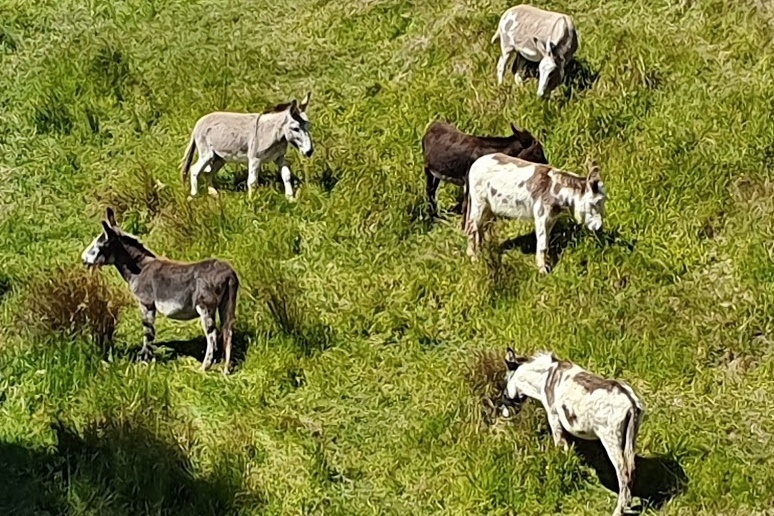About the Donkey and Mule Protection Trust
Find out more about the work we do supporting owners, rehoming donkeys and providing advice.
Role of the Donkey and Mule Protection Trust
The Donkey and Mule Protections Trust NZ Trust is a registered charity that raises money to support donkeys and mules across New Zealand under the care of the Trust.
Guardians
Donkeys (and mules) that are relinquished into the care of the Trust reside with guardians across New Zealand. Guardians are volunteers who dedicate their time and their land to look after donkeys in need. Money raised by the Trust goes toward the costs associated with these donkeys including vet fees, farrier costs, medication, special feed, and transport.
There are several levels of outcomes for the donkeys/mules:
Rehome Youngsters – Youngster with no obvious problems can be rehomed.
Rehome mature animals – Mature and well behaved with no obvious problems can be rehabilitated and rehomed.
Suitable for rehoming with knowledgeable home only – Some health problems, but possible to be placed in a suitable and knowledgeable home.
Sponsorship – In some cases, the animal due to health or behavioural issues may remain under the care of a guardian for the long term and the Trust will seek sponsorship from supporters to cover the main costs of caring for the animal.
Under no circumstances to be rehomed – Severe problems because of severe health problems or dangerous. In these cases the Trust may have to make the decision to euthanise the animal.
Information and Advice
The Trust also has a role in educating owners and potential owners of their responsibilities when owning donkeys/mules. Raising awareness of the unique nature of donkeys and mules is a critical part of what we do to minimise the risk of more animals needing care through ignorance or neglect.
Support and education
Support current owners to extend their knowledge, and ensure that they know the essentials of caring for a donkey/mule.
Continuing rehabilitation with owner
Where the neglect of the donkey/mule has occurred through ignorance, and is not willful, and the person in charge of the animal can give a good home to the animal with support and education, a volunteer will visit on a regular basis to assist and check.
The animal should be able to lead, tie up. Fencing should be safe and secure; there must be shelter, feet regularly trimmed. Introduce the person to a recommended farrier to ensure the feet are trimmed regularly. The owner should be able to recognise when the donkey/mule is ill.

